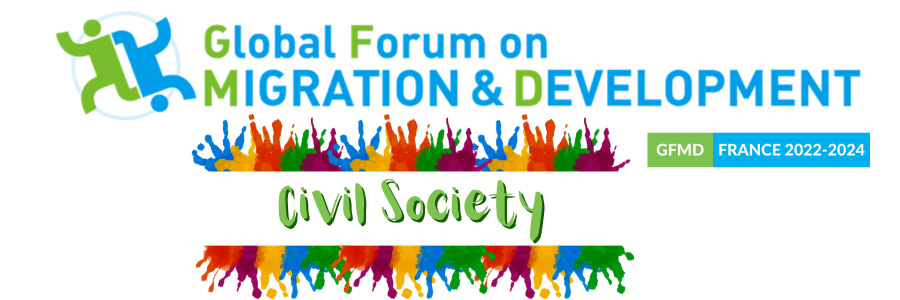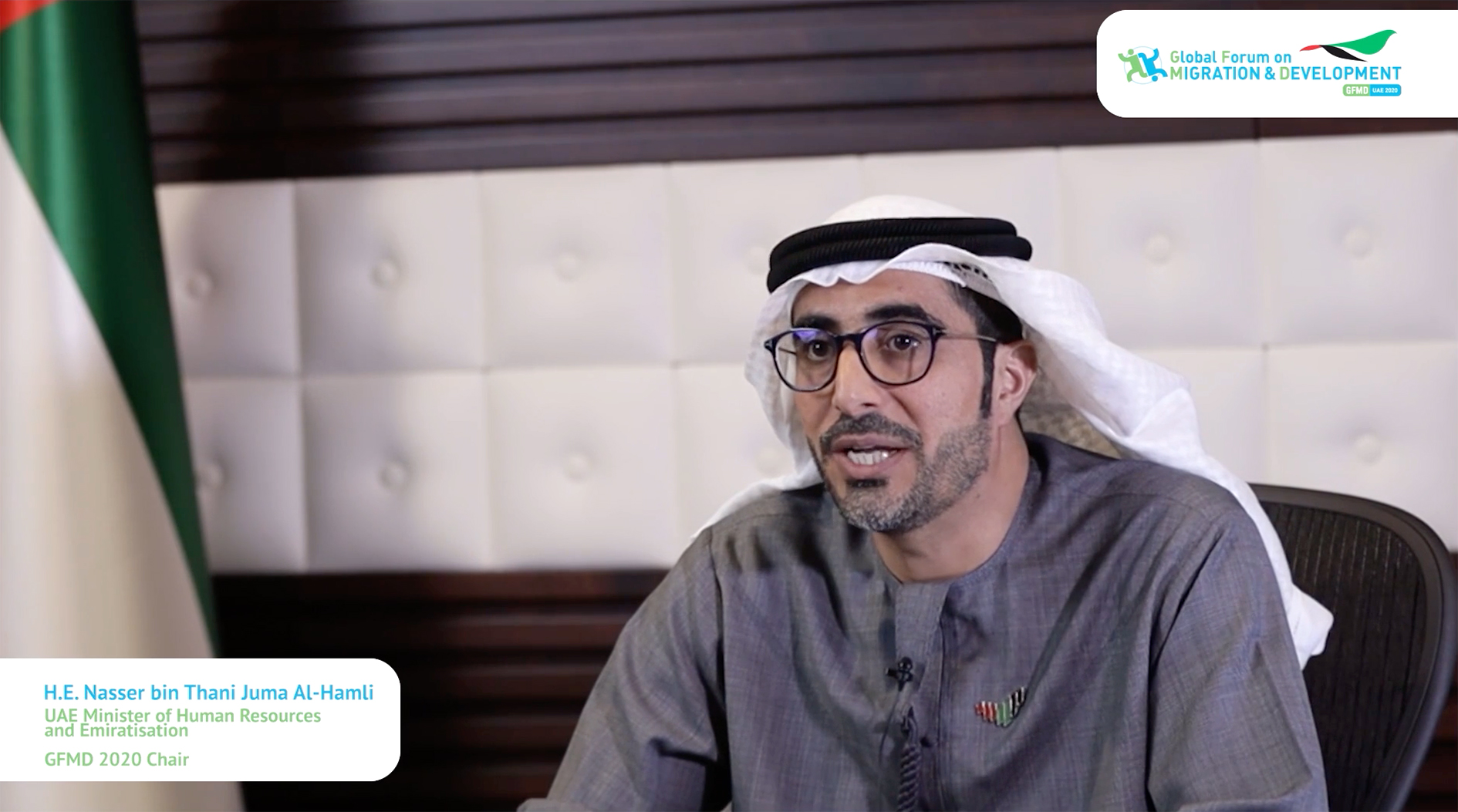Strong and inclusive partnerships, respect for fundamental rights, and social protection for all were highlighted by civil society at the GFMD Opening Ceremony.
The Opening Ceremony of the Global Forum on Migration and Development (GFMD) Summit took place on 18 January 2021.
The Ceremony featured keynote addresses from senior political and institutional leaders from around the world. Stella Opoku-Owusu of the African Foundation for Development (AFFORD) presented civil society advocacy priorities, developed in the Civil Society Preparatory Meeting during January 7-15. Opoku-Owusu acted as co-facilitator for the preparatory meeting, following from her role as co-chair of the Civil Society Days at the 2019 GFMD.
Interventions focused strongly on the impact of the COVID-19 pandemic for migrants and mobility, and the need for an effective response to be underpinned by strong cooperation and dialogue. As 2020 GFMD Chair H.E. Nasser bin Thani Juma Al-Hamli noted, the pandemic “calls us to act as a global community. This is why the GFMD was invented, and why it has enduring value.”
Opoku-Owusu reminded all delegates that this 13th GFMD Summit is the first to be open to all civil society delegates, noting how “as political spaces for civil society continue to shrink, the GFMD has become a standout example of how self-organized engagement by all stakeholders should look like, and how this enables us to reach our shared goals together.” She urged that the Summit maintain a focus on “recurring fundamental principles: that movement and mobility is a human right, and protection is ensuring that the human rights of people are respected, fulfilled, and implemented.”
Interventions also focused on the opportunities presented by the COVID-19 crisis. Opoku-Owusu identified several examples of “good practices that have given us all some hope and a glimpse into a future of possibilities of building back better,” including expanding regular pathways for migration, visa extensions and the recognition of the essential nature of many migrant workers and remittances. Echoing this perspective, H.E. José Ángel Gurría Treviño of the Organisation for Economic Co-operation and Development urged the Summit to “seize the opportunity presented by the pandemic to change our approach on the global challenge of international migration.”
“The years of co-creating this space together will lead to progress and overall building back better for migrants.”
Stella Opoku-Owusu, African Foundation for Development
Speaking to the Addressing Gaps in Migrant Protection theme, Opoku-Owusu noted the strong focus of civil society discussions on “the vulnerability of those who need social protection the most, including the need for access to health services.” Describing how COVID-19 has caused “a protection crisis for migrants and refugees, not just a health pandemic,” she noted the “additional impact of measures to mitigate the impacts of the pandemic, such as restrictions on movement, which in itself have inadvertently put migrants and refugees in precarious situations.”
Opoku-Owusu urged that access to public health assistance and vaccinations “be done without discrimination or lack or breach of safeguards or firewalls…to build a safety net that leaves no one behind.” H.E. Carola Gunnarsson of United Cities & Local Governments and Lord Mayor of Sala, Sweden, noted the specific perspective of local and regional authorities, in which “migrants are our neighbors first. They live and work in our cities, and need to use the same public services as other citizens.”
Opoku-Owusu noted how civil society had dealt with the GFMD Summit themes of Governance of Labor Migration and Skilling of Migrants together, because “we felt strongly that in addressing them as one, solutions for one would complement and enhance the other.” She gave several examples of the benefits of this approach, such as ensuring that the labor migration component includes protection for migrants, and the skilling component includes decent jobs. Opoku-Owusu particularly highlighted the issue of wage theft, a pre-existing issue that has been exacerbated by the economic shocks caused by COVID-19.
On Irregular Migration, Opoku-Owusu emphasized two core civil society advocacy messages for the Summit:
- That many migrants migrate regularly and then lose their status and become undocumented; and
- Emphasizing return policies is not effective in addressing the root causes of irregular migration.
She urged that the GFMD Summit move its focus away from irregular migration, and instead “delve deeper into understanding the systemic structures that often result in migrants becoming undocumented.”
Opoku-Owusu pointed to the linkages across the Summit’s thematic areas, and the importance of strong partnerships and an empowered civil society sector to producing effective cross-cutting solutions. She particularly highlighted the “unavoidable intersectionality that needs addressing and unpacking…to go much further in our understanding of the various levels of discrimination faced by migrants and develop policies to remedy this.”
Echoing other speakers’ calls to make use of the opportunities presented by the COVID-19 crisis, Opoku-Owusu encouraged delegates that “the years of co-creating this space together will lead to progress and overall building back better for migrants.”
Photo: 2020 GFMD Chair H.E. Nasser bin Thani Juma Al-Hamli, UAE Minister of Human Resources and Emiratisation © GFMD

